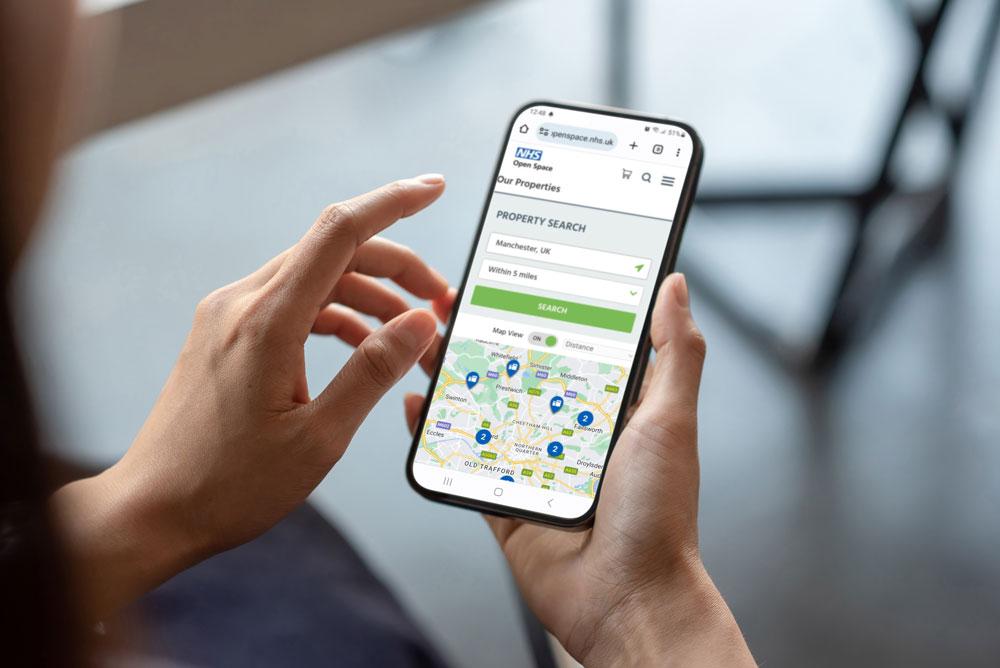Sarah Greenslade, Public Affairs and Communications Officer at the British Parking Association, explains the full definitions of the concessionary parking groups
There is a lot going on in the world of parking and hospital parking is no exception. You may have noticed in the last few weeks that parking spaces at hospital trusts are under pressure, as near pre-pandemic levels of staff, patients and visitors return.
The government has said free staff parking will continue until the ‘pandemic has abated’ which means for many trusts it has now become difficult to balance everyone’s needs for a parking space. The ‘perfect storm’ as one trust has put it.
When Health Secretary Matt Hancock announced in December 2019 that NHS trusts in England would be required to give free parking to four groups – disabled motorists, staff working night shifts, parents of sick children staying overnight and frequent outpatient attenders – the concessions were expected to take effect from April 2020.
Of course, Covid completely changed priorities, and the policy, promised in the Conversative Party’s 2019 election manifesto, was delayed. Fast forward to March this year and the long-awaited full definitions of these four groups were published* but with only six weeks to implement them, by the end of April.
The full definitions of the concessionary parking groups
• Disabled people - holders of a valid Blue Badge attending hospital as a patient or visitor, or for a disabled person employed by the hospital trust. Disabled patients and visitors receive free parking for the duration of their attendance at, or visit to, the hospital. Disabled employees receive free parking while at the hospital for purposes relating to their employment.
• Frequent outpatient attenders - all out-patients who attend hospital for an appointment at least three times within a month and for an overall period of at least three months. A ‘month’ is defined as a period of 30 days.
• Parents of sick children staying overnight - a parent or guardian of a child or young person, under 18 years, who is admitted as an inpatient at hospital overnight. They receive free parking between 7.30pm-8am while visiting the child. This applies to a maximum of two vehicles.
• Staff working night shifts - staff with a shift commencing after 7.30pm and ending before 8am receive free parking for the duration of their shift.
The BPA welcomes these concessions but feels it would have been far easier for trusts to have had 12-16 weeks to implement them, as we originally asked for. Over the last two years we helped the Department of Health and Social Care and NHS England and NHS Improvement to shape the definitions, so they are as clear and concise as possible.
Implementing the concessions
NHSEI has said implementing the concessionary groups is a matter for local interpretation ‘so long as the principles are met’. Consequently, everyone needs to understand that these concessions will vary from one trust to another. Although each trust’s parking environment is unique there are common challenges. There are differences in the geography of car parks, the parking technology and the concessions that are already in place: all these things affect the ability of a trust to deliver them. For example, automatic number plate recognition camera technology, which some trusts already have, can make it easier to allow free parking for disabled blue badge holders.
Speaking with many trusts, we know how challenging it is for some to offer these concessions with less than six weeks’ notice. For many trusts, it was not achievable by the end of the April deadline. Positively though, many trusts already offered free parking for blue badge holders and myriad concessions for frequent outpatients.
Keith Fowler, Associate Director of Facilities & Sustainability at North Lincolnshire and Goole Hospital Trust and BPA Healthcare Group Chair advises trusts to not over-think it or make it too complicated for themselves. He said: “If you have two of the concessions in place already, build on that and don’t be too prescriptive on the timings.”
Peter Aldridge, General Manager of Estates, Fire and Security, at Leeds Teaching Hospitals NHS Trust, commented: “It’s very difficult to ascertain what the true impact will be on delivering the free parking concessions and the effectiveness until we come out of free parking for staff, because it’s essentially a free-for-all at the moment. He goes on to say that ‘Free parking for all staff makes it difficult to manage our car parks effectively. The frequent outpatient concession is probably the most challenging out of all of them to have an absolute definition. It is just a matter of extending the wide range of concessions that we already have in place, but there are many competing influences we are dealing with relating to outpatient appointments currently.”
Steve Wedgwood, Deputy Director of Estates & Facilities at The Hillingdon Hospitals NHS Foundation Trust points out another practical challenge for trusts is ‘all the pay machines and posters need to be changed and this will take us until end of June’.
Another challenge the trust has is that although they will have a new hospital with a large multi-storey car park in 2025. Steve added: “For now, we have reduced parking space for staff due to site building works which, with the increased demand from free staff parking is creating chaos as demand is far exceeding the capacity we have each day. Normally staff parking takes up two-thirds of the spaces and we are having to find ways to make more spaces, for example re-lining areas to squeeze more space in and removing grass verges. We have also been using off-site parking at a local university to provide free staff parking.”
Making the parking experience seamless
There is wide support amongst trusts for the government to make capital funding available to invest in much needed new parking technology. It would make the whole hospital parking experience more seamless and hassle free for all, which has got to be a good thing. Access control, connectivity to patient services, real-time reservation of spaces and so much more would be technically feasible. However, this can only be done with appropriate planning, procurement, and implementation of new parking management systems.
As Aldridge puts it ‘the aim is for people with concessionaries to turn up on site and leave the car park without going through an arduous process of proving that they have been to an appointment’. New systems could allow for clinics to pre-register people for the frequent outpatient concession removing the need to claim back after the appointments. It could even remove the need for paper permits - a common feature in hospital parking. The extra funding was included in the 2021/22 government Spending Review but it is not known yet what capital funding will be made available.
Challenging times
The other immediate challenge for hospital parking, aside from implementing the concessions is catering for increases in visitor and patient numbers, whilst continuing to meet the demand for staff parking, which has been free throughout the pandemic. During normal times, trusts can have up to two thirds of parking spaces dedicated to staff which means trusts are looking at the practical options open to them to reduce demand for spaces. For example, the extension of agile and flexible working which has been one of the more positive outcomes of Covid. Many non-clinical staff are working from home, such as HR and admin, which helps to ease demand for staff parking and trusts are looking at how this might work in the longer term.
Predicting the future
Speaking in his position as BPA Healthcare interest group chair, Fowler is also thinking longer-term and what might happen to hospital parking in five to ten years’ time.
With the NHS long term plan and the bigger economies of scale with the introduction of Integrated Care Systems, he predicts there will be reduced need for parking. ‘There will be more short-term stay, more pick-up and drop-off, a greater emphasis on green and social prescribing, active travel, more agile working especially with admin staff, an increased need for ambulances and the creation of travel networks where public transport is integrated with the future Integrated Care Systems.’
So watch this space, things are changing fast in many sectors and hospital parking is no exception.
*On 1 April 2021 new government NHS car parking guidance 2021 replaced the ‘NHS patient, visitor and staff car parking principles’ that was originally published in 2015. The Health Technical Memorandum (HTM) 07-03 remains in place.
https://www.gov.uk/government/publications/nhs-patient-visitor-and-staff...
https://www.gov.uk/government/publications/nhs-car-parking-management-ht...





